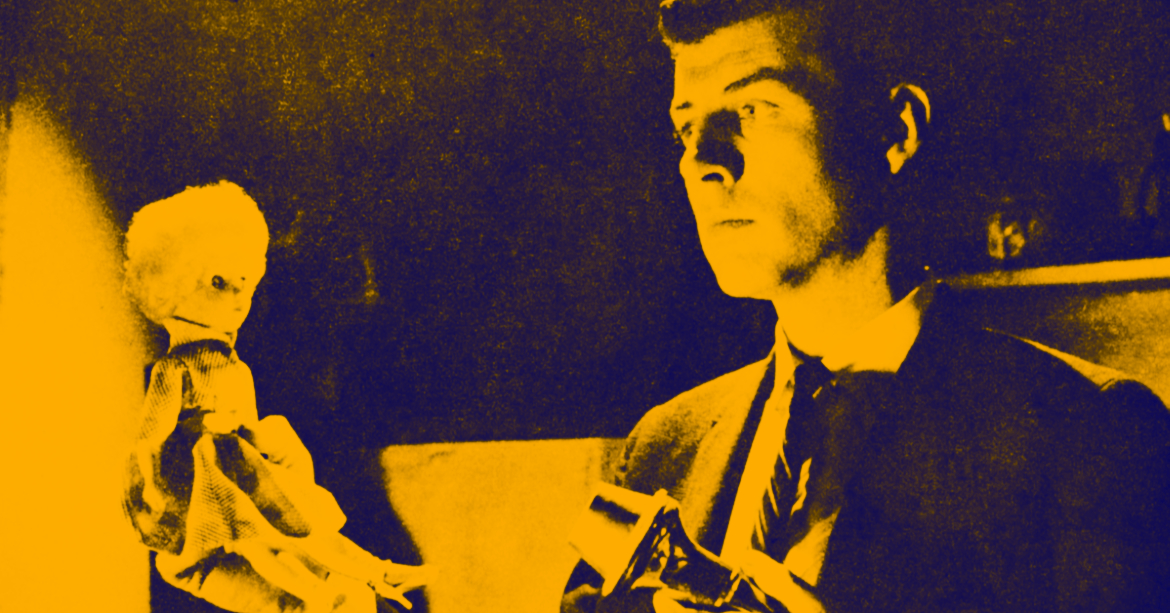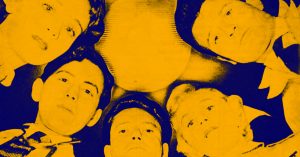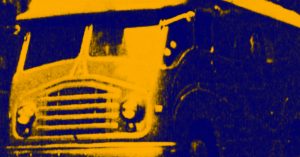Ghost Squad
ATV’s Ghost Squad – based on a real Metropolitan Police undercover division – is profiled in 1963

The original “Ghost Squad” had its origin in one of the Divisions of London’s Metropolitan Police. The aim of creating this new branch was to arrange for the infiltration of a small group of hand-picked detectives of long standing in the Force who would break with their day-to-day routine investigation work to go underground, there to live and move in the haunts of London’s underworld.
From the ATV Television Show Book for 1963
As this small band became integrated with all branches of crime in the capital city, and as its members rubbed shoulders with the criminals of all types who frequented their new “beat”, so valuable information was picked up and passed on to Scotland Yard. Such information often meant that a planned crime could be nipped in the bud. On other occasions it meant that the movements of a wanted man were known to the authorities and the means of capturing him could then be executed with the minimum of risk to success.

Jack Capstick and John Gosling, now retired senior police officers, were both members of the first exclusive band who were prepared to remove themselves from all the protection that the law could give so that they could help their colleagues on the outside perform more easily their job of keeping the law.
It was to Gosling’s book on “The Ghost Squad” that ATV turned when a series of programmes depicting the work of such men was first considered.
But where Capstick, Gosling and the rest of the early “Squad” operators lived and worked, in an area which seldom stretched beyond fifty square miles of London — and there were even weeks on end, in fact, when their activities confined them to the square mile of Soho itself — the brief given to the authors of ATV’s “Ghost Squad” stories enabled them to range the world, for their settings, to tell their stories through the fortunes and misfortunes, hopes and shattered dreams of people from almost any corner of the globe.
If the television “Ghost Squad” was to be international, then its operators were not to be confined merely to London policemen who were prepared to change their uniform — official or otherwise — for any disguise befitting the case on which they were working.

So the idea of “Ghost Squad” operator Nick Craig was created. The character called for an American actor, tall and rangey, distinctive in voice, with the ability to melt into the background, yet with a personality and presence which allowed him to leave his imprint on any assignment undertaken.
Such an actor was found in the person of 6ft.-4in. Michael Quinn, who came to Britain almost unknown to play the role of Craig. But he was to do such a good job that more than one major film organisation was to make very serious attempts to woo him back to Hollywood during the eighteen months he spent working at ATV’s Elstree Studio Centre.
Quinn is a good example of the new-type American actor who is now looking beyond his own shores for work, as well as looking for an opportunity to find out what is new and challenging in other film and TV capitals throughout the world. Producer Antony Kearey cast Neil Hallett in the part of Tony Miller, the other main “Ghost Squad” operator, seizing an opportunity to bring a new face to a regular TV role.
Where Quinn, at a glance, can be said to be undeniably American, Hallett has all the attributes which are characteristic and distinctive in an accomplished English actor with the sound experience and training of an apprenticeship served in English repertory theatres.
He has a good speaking voice, is agile in movement, dresses well, and he can throw off a humorous line of dialogue in comedy banter as easily as one-word questions.

Behind the activities of both men lies the guiding hand of Geoffrey Stock, the Chief of the “Ghost Squad”. An irascible character, Stock sweats it out in lonely silence when one of his operators is on a dangerous mission. The tensions he suffers are not helped by the “pressures” to which he is exposed from the “faceless” ministers to whom he must report, or by a constant nagging stomach complaint for which no amount of powders and glasses of water, kept readily at hand by his harassed secretary, Jean Carter, can bring relief.
At times his operators think of him as being unreasonable, bad-tempered, inconsiderate — occasionally all three at once—but they would not deny that he possesses the ability for his taxing job.
There are occasions when Geoffrey Stock puts his big desk in his secret headquarters, his multitude of phones and the large-scale map hidden in a panel of the wall of his office behind him. When he thinks he must handle a case personally his mastery of disguise, his ability to assess people and his eye for fine detail come into their own — and his missions successfully accomplished leave his younger associates very much in awe.

Genial Anthony Marlowe gives the appearance of being ready made for the tweed suits, bow ties and countryman’s soft hat with its raffish swept-up side which would seem to be Stock’s favourite choice in dress. If such clothes are characteristic of the man, so also is his pair of horn-rimmed spectacles — especially when they slip to the end of his nose, for this is invariably a sign of trouble for someone. And if Craig or Miller are not on the receiving end of it, then woe betide the one “the Chief” has it in for.
Cases which the “Ghost Squad” are asked to handle have sent Craig and Miller — and occasionally Geoffrey Stock himself (as well as “Porridge”, the Chief’s Scots-born secretary) — travelling to most of the capital cities of Europe. It has also meant their operating in torrid Middle East oil centres, getting caught up with white-slave traffickers, drug-pedlars, counter-agents who cunningly used Army paratroop manoeuvres as their means of passing information, and criminals of all races and descriptions who are prepared to play for the smallest as well as the highest possible stakes.
Danger is the “Ghost Squad” man’s constant companion whenever he is on the job. He has no recourse to the recognised means of help if he finds himself in difficulties, for he must play a lone hand.
The real-life “Ghost Squad” called for men of initiative and imagination and “guts”. The television series requires artistes who can bring to each new story in which they appear acting technique of a high order, understanding and a sense of adventure.
Messrs Quinn, Hallett and Marlowe — not forgetting Claire Nielson, who played Stock’s secretary — have proved that they are well able to measure up to all these requirements.
About the author
Joint editors of the Purnell Television Show Books and associated titles



